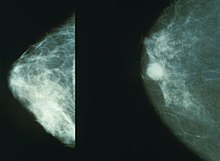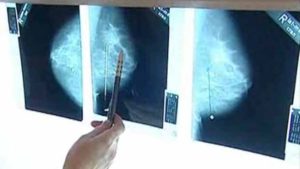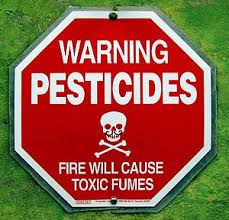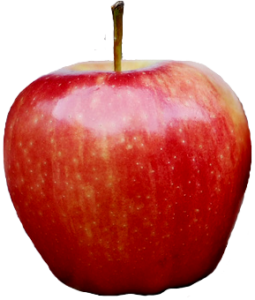 Some good news for women and breast cancer. We are all exposed to endocrine disruptors around us - such as in personal care items, some household items, some medical devices and medications, plastic raincoats, and vinyl flooring. Phthalates, which are endocrine disruptors, are used as plasticizers in many of these products. We can lower our exposure to phthalates, but can't totally eliminate it. So a big question is: Is exposure to phthalates linked to breast cancer?
Some good news for women and breast cancer. We are all exposed to endocrine disruptors around us - such as in personal care items, some household items, some medical devices and medications, plastic raincoats, and vinyl flooring. Phthalates, which are endocrine disruptors, are used as plasticizers in many of these products. We can lower our exposure to phthalates, but can't totally eliminate it. So a big question is: Is exposure to phthalates linked to breast cancer?
Animal and laboratory studies suggest that a number of phthalates have carcinogenic effects (cancer causing), but several retrospective studies of women had mixed results regarding whether higher phthalate levels are associated with breast cancer or not. But now a large study (the Women's Health Initiative) that followed postmenopausal women for 2 decades has found that phthalate levels are not associated with an increased risk of breast cancer.
The 1257 women (average age 62 1/2 years at the start) in the study gave either 2 or 3 urine samples (once a year) during the first 2 or 3 years of the study, and the urine was analyzed for a number of phthalates. Then the women were followed for 19 years. The researchers found some "suggestive associations", but nothing significant. Whew... We can breathe sigh of relief.
However, there are some real problems with the study. While it does not look likely that phthalates have a large effect, smaller associations are possible, which the researchers discuss.
1) One big problem is that phthalates are rapidly metabolized and excreted from the body, so that the levels can vary tremendously from one point in time to another. (Half of phthalate metabolites are excreted in urine within 12 to 24 hours of exposure.) And the researchers did find that "phthalate biomarker concentrations exhibited high within-person variability over a 3 year period". More urine samples should have been taken from the women - not just one a year for 2 or 3 years. This study did not look at who routinely got exposed to high levels of phthalates and who wasn't. Half of phthalate metabolites are excreted in urine within 12 to 24 hours of exposure. Just having a week with lots of fast food could raise phthalate levels (the chemicals leach in from the packaging). See why only one measurement a year is inadequate?
2) Another big problem is that most of the postmenopausal women - whether with breast cancer or not, were using hormone therapy - in the past or during the study. As the researchers point out: "Because phthalates are far less estrogenic than hormone therapy formulations, it is possible that hormone therapy use may mask any true effect of phthalate exposure on breast cancer risk." 3) And the last big issue to think about is that this study did not look at early life exposures to phthalates, such as during puberty when the breasts are developing. Other studies suggest that exposure to endocrine disrupting chemicals are important during critical periods of life, especially earlier in life (e.g. adolescence). Looking just at phthalate exposure of postmenopausal women may be too late.
According to studies and the CDC, almost everyone in the United States is exposed to phthalates in varying degrees, especially by eating and drinking food and liquid that has come in contact with containers and products containing the chemicals, and by inhaling indoor air that has phthalates in the dust. Adult women tend to have higher exposure to certain phthalates (it's measured in the urine) that are used in soaps, body washes, shampoos, cosmetics, and similar personal care products. ...continue reading "Breast Cancer and Endocrine Disruptors"


 We all know that microbes (fungi, viruses, bacteria) live throughout our bodies - this is the human microbiome or microbiota. What is really interesting is that cancer tumors also have microbiomes (tumor microbiome), and these microbial communities are different than that found in healthy people (without tumors).
We all know that microbes (fungi, viruses, bacteria) live throughout our bodies - this is the human microbiome or microbiota. What is really interesting is that cancer tumors also have microbiomes (tumor microbiome), and these microbial communities are different than that found in healthy people (without tumors). We've all been warned over and over to avoid sunlight in order to avoid skin cancer, but... conflicting with that advice are studies linking higher sunlight exposure to lower levels of other cancers,
We've all been warned over and over to avoid sunlight in order to avoid skin cancer, but... conflicting with that advice are studies linking higher sunlight exposure to lower levels of other cancers,  For years scientists have warned of breast cancer links to some pesticides, while the EPA and the chemical industry pooh-poohed these associations. Just a coincidence, not true, studies poorly done, and ignore or attack were their common responses. Seeing a mismatch between scientific evidence and what the EPA was saying led researchers at the respected Silent Spring Institute to examine EPA pesticide documents and studies.
For years scientists have warned of breast cancer links to some pesticides, while the EPA and the chemical industry pooh-poohed these associations. Just a coincidence, not true, studies poorly done, and ignore or attack were their common responses. Seeing a mismatch between scientific evidence and what the EPA was saying led researchers at the respected Silent Spring Institute to examine EPA pesticide documents and studies. Once again, a study found that the foods we eat are associated with our risk for breast cancer. Results from a long-running
Once again, a study found that the foods we eat are associated with our risk for breast cancer. Results from a long-running  A very interesting, but very preliminary
A very interesting, but very preliminary  Some good news for women and breast cancer. We are all exposed to endocrine disruptors around us - such as in personal care items, some household items, some medical devices and medications, plastic raincoats, and vinyl flooring. Phthalates, which are endocrine disruptors, are used as
Some good news for women and breast cancer. We are all exposed to endocrine disruptors around us - such as in personal care items, some household items, some medical devices and medications, plastic raincoats, and vinyl flooring. Phthalates, which are endocrine disruptors, are used as  A recently
A recently